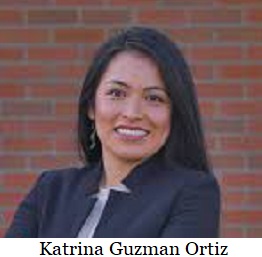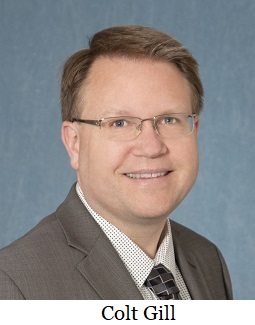
On this day, July 3, 1997, the Rainbow Family, founded in 1971, began their 25th gathering in Ochoco National Forest in Oregon. 20-30,000 were expected to participate.
Also on this day, July 3, 2017, Oregon enacted a rule change allowing people who do not identify with their gender to instead mark "X" on their driver's licenses of state ID cards.
Also on this day,July 3, 1975 interstate 80N (later renamed I-84) was completed with four lanes open from Portland to Idaho border. Dedication ceremonies were held outside Baker City.
It’s less expensive to pay for a round-trip fare on public transit
The Portland Bureau of Transportation, in partnership with Lloyd area businesses and residents, will begin implementing new rates for on-street parking during large-scale events to encourage public transit and biking, and reduce congestion and pollution in the
Lloyd Event District.
Starting Friday, Sept. 9, on-street parking will cost $3 an hour, up from $1 an hour, with meter hours operating until 10 p.m. The new rate will be in effect all day, from 8 a.m. to 10 p.m., this Friday through Sunday. The all-day rate will be in effect on three other days through the end of the year. On 24 other days, it will be in effect only from 5 to 10 p.m.
The new rate is expected to relieve pressure on people who live or work in the Lloyd and Rose Quarter area, reducing traffic, and making it easier for residents and other visitors to find on-street parking.​
According to PBOT, when people attend conventions and pro sports games in the busy neighborhood, it's less expensive for them to drive and park their cars in public, on-street parking spaces than it is to pay the $5 for a round-trip fare on public transit. This creates severe parking shortages, as parking occupancy jumps from about 30 percent normally to more than 90 percent during event days. With nine out of 10 spaces occupied, people drive in circles in the area to find parking, driving while distracted and creating congestion and delays for bus service and local residents and businesses.
The event district for the Lloyd area was approved by City Council in April. It allows PBOT to charge $3 an hour during the 90 events a year that draw more than 10,000 visitors, mostly during evening hours. On-street parking will be affected at the 1,250 spaces in the area, where parking has historically been free or $1 an hour.
A D V E R T I S E M E N T

A D V E R T I S E M E N T
Event parking districts using higher meter rates and extended hours of enforcement have been successful in managing parking impacts to event areas in other cities and in Southwest Portland near Providence Park Stadium.
The district implements several policies passed by the city council over many years. In 2018, council passed an ordinance for the
Performance Based Parking Management Manual, which outlines how and where to establish Event Parking Districts. It is consistent with the report and recommendations by the
Pricing Options for Equitable Mobility Task Force, which were
accepted by council last year.
--Staff Reports| Post Date: 2022-09-08 06:44:05 | Last Update: 2022-09-07 15:00:04 |
A politically active community member
Lori Kuechler has been appointed to the Oregon House by Clackamas, Hood River and Multnomah county commissioners. Her predecessor, Anna Williams (D-Hood River) was one of three legislators who complained of the low salaries paid to Oregon House Members. Williams will become the executive director of Oregon’s System of Care Advisory Council, which has a pay range listed from $7,814 - $12,087 per month -- far exceeding her legislative pay.
Oregon law requires that a legislative vacancy be filled by county commissioners representing the district in which the vacancy exists. House District 52 includes voters in Clackamas, Hood River and Multnomah counties. Finalists were selected by the local Democratic Party, as deemed by state law.
According to her biography on LinkedIn, Kuechler describes herself:
I am a freelance, contract grant consultant and writer, a college professor of the Liberal Arts, a published writer, and experienced fundraising and development professional. I am skilled in fundraising narrative and marketing content; grant writing and grant management; nonprofit sustainability consultation; nonprofit funding prospect research and cultivation; and adjunct teaching in higher education, with a special focus on the academic and personal support of first-generation college students. I am a politically active community member with a Master of Arts in Interdisciplinary Studies.
Kuechler will be sworn in and will serve in the upcoming 2023 Legislative Session.
--Staff Reports| Post Date: 2022-09-08 06:23:21 | |
The changes do not mean the pandemic is over
The Oregon Health Authority has
announced changes to its reporting of COVID-19 data and provided an update on the new bivalent COVID-19 boosters. State health officials also gave an update on monkeypox in Oregon, including new demographic data and recommendations for monkeypox vaccines.
OHA Director Patrick Allen said COVID-19 data reporting is changing next week, with the COVID-19 Data Update moving to a weekly schedule and other data moving to a monthly cycle. "Shifting our reporting to match where we are in the pandemic will also allow us to free up resources that can be used for responding to other public health events that are equally important," Allen said.
Dean Sidelinger, M.D. MSEd, health officer and state epidemiologist at OHA, said the state has recorded fewer COVID-19-related cases and hospitalizations, but still has high levels of circulation based on wastewater and testing results.
Sidelinger encouraged all eligible Oregonians to get a newly approved COVID-19 booster as soon as they can. "As we head into fall, as more of us spend time indoors, the updated booster will be the best way to protect ourselves and those around us from severe illness and hospitalization caused by the predominant BA.5 and BA.4 COVID-19 subvariants," he said.
A D V E R T I S E M E N T

A D V E R T I S E M E N T
Sidelinger also said OHA has counted 179 presumptive and confirmed cases of monkeypox as of today. He said Oregon has distributed, or is in the process of distributing, more than 40,080 doses of the Jynneos vaccine and 263 courses of the investigational antiviral drug known as tecovirimat — or TPOXX — since June 20. He encouraged people to talk to their providers about testing if they have symptoms of monkeypox. Providers should test their patients for the virus, even if it's only suspected, based on a patient's symptoms, he said.
New dashboard focuses on cases, hospitalizations and deaths by vaccination status
The new dashboard will display information previously available in the Breakthrough Case Report and will highlight trends in cases, hospitalizations and deaths by vaccination status over time. Data are available at state and county levels. The updated dashboard aligns with the Centers for Disease Control and Prevention's (CDC) COVID-19 hospitalizations by vaccination status dashboard.
According to the OHA new dashboard data demonstrate that COVID-19 vaccines are very effective at protecting people from developing severe illness, being hospitalized and dying. COVID-19 vaccines are widely available and free to everyone in Oregon.
The new dashboard will replace the monthly Breakthrough Case Report, which will no longer be updated. The dashboard will be published for the first time on Sept. 8 and published on the second Wednesday of the month.
The changes do not mean the pandemic is over. OHA will continue to monitor and report cases, deaths, hospitalizations, variants, vaccination and booster rates and other developments. These monitoring efforts include analyzing wastewater samples across the state to track COVID-19 spread.
--Ritch Hanneman| Post Date: 2022-09-07 18:47:03 | Last Update: 2022-09-07 19:30:03 |
"This is one way we're working to build trust with Oregonians"
The Audits Division of the Oregon Secretary of State's Office has released the annual
Keeping Oregon Accountable report. The report summarizes the results of the Oregon Audits Division's two largest annual audits: the audit of Oregon's financial statements, otherwise known as the Annual Comprehensive Financial Report, and a compliance audit of the state's administration of federal programs, otherwise known as the Statewide Single Audit.
"Auditors from my office poured over the numbers to make sure state resources are properly accounted for," said Secretary of State Shemia Fagan. "This is one way we're working to build trust with Oregonians."
The division audited 18 federal programs at 11 agencies and issued 29 findings and recommendations. Auditors issues a clean opinion of 16 of the audited federal programs, while issuing a qualified opinion for two programs, suggesting improvements to the state's Temporary Assistance for Needy Families and Low-Income Home Energy Assistance programs. Additionally, auditors questioned whether $10,031,362 in expenditures were appropriately paid with federal funds.
Auditors also issued a clean opinion of the state's financial statements for fiscal year 2021, identifying $1.7 billion in accounting errors, all of which were identified as unintentional. Accounting errors refer to transactions that were incorrectly categorized. The money identified here was still used for appropriate state government purposes. Auditors proposed steps agencies can take to correct those errors.
A D V E R T I S E M E N T

A D V E R T I S E M E N T
The Secretary of State Audits Division annually audits the State of Oregon's financial statements and compliance with federal program requirements. The federal government requires these audits for the financial assistance Oregon receives annually. These audits determine whether amounts reported in Oregon's financial statements are materially correct and adequately supported; evaluate the state's administration of major federal programs for compliance with applicable laws, rules, and regulations; conclude on whether the Schedule of Expenditures of Federal Awards is fairly presented in relation to the state's financial statements; and review accounting and compliance control procedures.
--Staff Reports| Post Date: 2022-09-07 12:10:31 | |
It will support data justice in communities most affected by health disparities
The Oregon Health Authority has begun publishing monthly reports of monkeypox case data by sexual orientation or gender identity, and by expanded categories of race and ethnicity. According to the OHA, publication of the data, in consultation with OHA's Equity and Inclusion Division, will help the agency better understand the diversity of the people living in Oregon, which will help it identify and address health disparities and support data justice in communities most affected by health disparities.
The monkeypox outbreak is the first communicable disease outbreak for which OHA is publicly reporting sexual orientation or gender identity (SOGI) data, and data from expanded race and ethnicity categories found in REALD, or race and ethnicity, language or disability. The data will be reported each month on OHA's
monkeypox (hMPXV) website.
"OHA has established a strategic goal to achieve health equity by 2030," said Dean Sidelinger, M.D., health officer and state epidemiologist at OHA. "A critical component to meeting this goal is ensuring meaningful access to services for everyone in Oregon, regardless of their race, ethnicity, language, disability, or sexual orientation and gender identity. The REALD and SOGI data will help guide OHA and its partners in an equitable response to the monkeypox outbreak."
In 2021, the Oregon Legislature passed
HB 3159, which charged OHA with drafting and adding SOGI questions to the current data collection standards in OHA Oregon Administrative Rules, building a data collection system for both REALD and SOGI, and developing and implementing reporting requirements.
A D V E R T I S E M E N T

A D V E R T I S E M E N T
In 2018, OHA's Equity and Inclusion Division convened a Sexual Orientation and Gender Identity Data Collection Committee. The group consists of internal and external stakeholders who interact with the LGBTQ+ community and health systems, many of whom identify as LGBTQ+ themselves.
The Oregon Legislature passed
HB 3159 in 2021, charging OHA with drafting and adding SOGI questions to the current data collection standards in OHA Oregon Administrative Rules, building a data collection system for both REALD and SOGI and developing and implementing reporting requirements. The SOGI Data Collection Committee draft data collection standards have been implemented in Oregon's public health communicable disease data collection system known as Orpheus.
OHA and local public health partners have been collecting SOGI information from people diagnosed with monkeypox since the start of the outbreak in Oregon.
While the narrative of monkeypox in the United States has centered on cisgender gay men as the population most affected by the virus, this narrative does not reflect the full spectrum of people who have been affected by monkeypox. The SOGI will help illuminate the experiences of people with other gender identities and sexual orientations in the Oregon outbreak of monkeypox, Sidelinger said.
--Staff Reports| Post Date: 2022-09-07 12:01:08 | Last Update: 2022-09-07 12:43:36 |
“Thanks to the fiscally responsible decisions, we are well positionedâ€
As the state released its
quarterly economic forecast, and despite massive infusions of federal dollars for COVID relief as well as enormous federal borrowing to buoy a fragile economy and stave off economic downturn, Governor Brown took credit for whatever positive was in the economic forecast.
“Thanks to the fiscally responsible decisions the State of Oregon has made over the last several years, we are well positioned with significant reserves to weather any economic challenges that lie ahead. Now, we must continue to make investments to benefit Oregon’s working families, so that all Oregonians can feel the benefits of our strong economic recovery.
“With rising costs of living continuing to impact Oregon families and businesses, the Legislature can, in the budget for the next biennium, build on the investments we made in the last session -- particularly in housing, workforce development, behavioral health, and child care.
“And, thanks to the work of Oregon’s congressional delegation and the Biden-Harris administration to pass the Inflation Reduction Act and the Bipartisan Infrastructure Law, we can continue to invest federal dollars to lower costs and create jobs for working families.â€
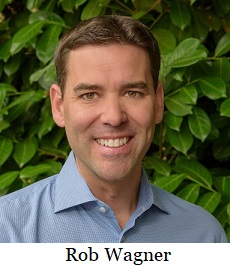
“Oregon’s economy is still strong. Oregon Senate Democrats’ investments in housing, education and childcare are showing results. The market is stabilizing and our budgets continue to reflect our success. We are driving down costs for everyday Oregonians and providing investments and opportunity for every community around the state," said Senate Majority Leader Rob Wagner (D-Lake Oswego). "The responsible and fiscally smart leadership of Oregon Democrats have left us with the largest budget reserves in Oregon state history,†failing to recognize the impact of massive federal spending.
Senate President Peter Courtney (D-Salem) took a more sobering line. “Our economists say Oregon is doing well. Not all Oregonians feel the same way. We should invest in our communities carefully… and stay on our toes. If there is a downturn, Oregon will be ready.â€
Oregon House Speaker Dan Rayfield (D-Corvallis) issued a rosy statement. “The Oregon economy continues to be fundamentally strong. Hiring has increased, our unemployment rate is near its lowest level on record, and we hold record reserves following years of sound fiscal management by Democratic leadership. After a session in which we made critical one-time investments in all corners of the state, we’ll keep prioritizing the issues Oregonians care most about like housing, behavioral health support, abortion access and more.â€
House Majority Leader Julie Fahey (D-Eugene) used the occasion to take a swipe at Oregon producers. “Today’s revenue forecast demonstrates steady growth in our economy and shows why we must continue to invest in working and low-income Oregonians, as well as small businesses,
which make up 99.4% of all businesses in the state. When corporations and the wealthiest of Americans are raking in the largest profit margins since the 1950s and have received generous tax break handouts, it’s past time we build an economy that works for everyone -- not just those at the top.
[[ADS_SLUG4]]
“That means focusing our investments on driving down cost of living, addressing the ongoing affordable housing crisis, creating stronger schools, improving our childcare infrastructure, and supporting small businesses. These investments will help all Oregonians prosper, not just now but in the years to come. Because we know that when everyone has economic opportunity and the resources they need to thrive, we are all stronger and better for it.â€
--Staff Reports| Post Date: 2022-09-07 11:40:44 | Last Update: 2022-09-07 18:37:01 |
Commenters providing testimony for the first time will be given priority
The Oregon Transportation Commission will meet Thursday, Sept. 13, at 9:00am in the Gail Achterman Conference Room of the Transportation Building, 355 Capitol Street N.E., in Salem. A remote option for participating in the meeting is available.
Items on the agenda include:
- Tolling Program Report, Policy and Engagement: Receive an update on the amendment process to date, a summary of comments received and anticipated policy revisions. Approve and provide any guidance to ODOT staff on the Low Income Toll Report's findings and next steps. The report will be sent to the Oregon Legislature by Sept. 15.
- ADA Update and STIP Amendment: Receive an update on efforts to deliver ADA compliant curb ramps on or along the ODOT highway system, current challenges, and the program funding plan. Request approval to amend the 2021-24 STIP to add and modify projects by advancing funding from the 2024-27 STIP.
- Innovative Mobility Program Update: Receive an informational update and provide feedback on engagement and program development work for the Innovative Mobility Program.
Meeting materials will be available on the OTC Website.
You can join the meeting in-person, join via YouTube Livestream: www.youtube.com/c/OregonDOT (closed captioning provided), or listen only by phone at 1-346-248-7799 or 1-669-900-6833 — Webinar ID: 829 7831 6786
According to ODOT, members of the public are asked to submit written comment in advance of the Sept. 13 meeting and sign up for real-time virtual oral public comment. To sign up, please complete the comment form and RSVP by Friday, Sept. 9 at 3 p.m. The form is available on our website at www.oregon.gov/odot/Get-involved/Pages/OTC_Main.aspx.
A D V E R T I S E M E N T

A D V E R T I S E M E N T
ODOT reminds participants that participation will be limited to one representative per organization. Additionally, commenters (and organizations) who are providing oral testimony to the OTC for the first time will be given priority for the limited available testimony spots.
To submit written testimony or comment electronically, please use the submission form on the OTC website by Friday, Sept. 9 at 3 p.m. to guarantee inclusion in the meeting packet. Comments not included in the meeting packet will be shared with commissioners after the meeting.
Email written comments to OTCAdmin@odot.oregon.gov
--Staff Reports| Post Date: 2022-09-06 13:14:23 | Last Update: 2022-09-06 13:28:05 |
Fire is burning 22,000 acres in Wallowa County
Governor Kate Brown has invoked the Emergency Conflagration Act in response to the Double Creek Fire burning near the community of Imnaha and the Sturgill Fire burning south of the community of Lostine -- both in Wallowa County. This declaration allows the Office of the State Fire Marshal to take unified command today. The fires are estimated to be 10,000 and 12,000 acres respectively in size, and the Wallowa County Sheriff's Office has issued Level 3, Level 2, and Level 1 evacuation orders for homes near the fires.
"The Double Creek Fire grew rapidly overnight, requiring additional resources to battle the fire and support the state's response. The Sturgill Fire grew rapidly and has the potential for further growth in the coming days, which requires additional resources to support response efforts," said Governor Brown. "With many fires actively burning across the state and several weeks of peak fire season ahead of us, I am urging all Oregonians to be prepared. Please continue to follow local and statewide fire prevention regulations and share what you know with others. Every fire we prevent helps keep our communities and firefighters safe, and our natural resources protected."
In accordance with
ORS 476.510-476.610, Governor Brown determined that a threat to life, safety, and property exists due to the fire, and the threat exceeds the firefighting capabilities of local firefighting personnel and equipment. The Governor's declaration cleared the way for the State Fire Marshal to mobilize firefighters and equipment to assist local resources battling the fire and further support a coordinated response.
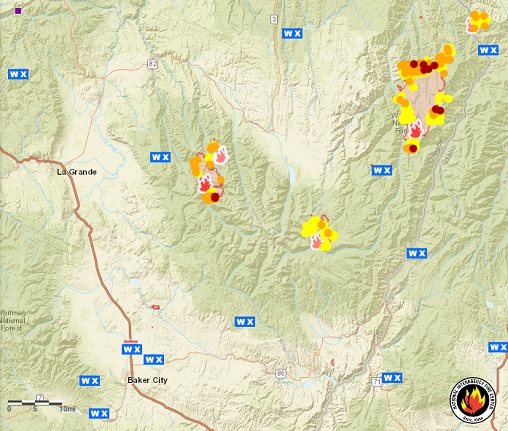
Currently, local mutual aid and federal resources are on scene working to slow the fire's progress. An OSFM Incident Management Team will be briefed and will assume unified command today with federal partners. OSFM will bring in four additional task forces through the Oregon Fire Mutual Aid System from Lane, Clatsop, Washington, and Yamhill Counties to assist in the response.
With forecasted winds and multiple lightning-caused fires already burning near communities in Oregon, OSFM will remain vigilant with response efforts. An OSFM Incident Management Team is already mobilized and will remain in place to assume unified command of the Sturgill Fire. OSFM will assess response needs with the forecasted weather and fire conditions and bring in additional task forces through the Oregon Fire Mutual Aid System as needed.
--Staff Reports| Post Date: 2022-09-06 12:46:08 | Last Update: 2022-09-06 13:14:23 |
Her decision to tax hospitals and nursing homes hurts seniors
In 2013, Val Hoyle voted to raise taxes on hospitals and nursing homes. According to a press release from the Alec Skarlatos Campaign, "Val Hoyle failed to realize that these costs would be passed to seniors and families across Oregon, and today the cost of healthcare and prescription drugs has steadily increased, with prices expected to rise again in 2023." Skarlatos is running against Hoyle to replace Peter DeFazio in Congressional District 2 in Southern Oregon.
“It was shortsighted for Val Hoyle to raise taxes on Oregon’s hospitals and nursing homes because now these costs have been passed along through higher healthcare costs to seniors and families across Oregon,†said Oregon National Guard Veteran Alek Skarlatos. “I’m running for Congress to offer fresh ideas and new solutions, and it starts by lowering the cost of healthcare and prescription drugs, which Joe Biden, Val Hoyle, and the Democrats who run Washington have failed to accomplish.â€
On May 14, 2013, Val Hoyle voted for
HB 2216 that would extend the sunset on a collection of hospital assessment.
--Staff Reports| Post Date: 2022-09-06 11:53:41 | Last Update: 2022-09-06 16:29:19 |
Marc Thielman announced he intends to run for Secretary of State
The
Gathering of Eagles and Oregon Liberty Coalition’s Rally Around the Flag held their fifth event since joining forces. It was filled with evidence from groups and individual seeking justice in Oregon’s election system.
Two counties, Coos and Lane, told of their efforts filing public records requests and in Coos County the hard drive “crashed†destroying all records causing the county clerk to resign. Rod Taylor presented information on how your party can be identified in the numbering on the envelope. The Legislature authorized counties to do away with security sleeves exposing the ballot number through the envelope window.
Paul Metzler from Lane County provided information that Lane County has a large number of people registered in vacant lots. Through canvassing teams, they are finding people registered in homes that don’t live there to the tune of 11,823 more adults on the voter roll than the U.S. Census. Their teams are also monitoring drop boxes and they follow the ballot pickup. They are recognized as a great roadmap for other counties.
Attorney Stephen Joncus told the audience that lawsuits are showing “extreme†levels of fraud in the election system. On September 20-21 the Tim Sippel case will be heard in Washington County to determine if the public has a right to public records. The Oregon Secretary of State has inserted itself into the case and Attorney General Rosenbaum put on record that the “election tabulators are subject to physical and wireless attacks and if the information is released, it would cause irreparable harm to Oregon’s election system.†Admitting the election machines are accessible to manipulation Joncus said will carry weight in lawsuits. The Secretary of State is telling county clerks not to respond to records requests and upping the charges. They are working to get court intervention.
Joncus is working with Marc Thielman using the case of Brown v Board of Education, which founded that separate but equal was unconstitutional. The court said the case is not determined on casual factors, we’re not going to measure whether black and white schools are technically equal in what they provide to students. It’s more intangible factors that separates children by race and creates a sense of inequality, inferiority or a crisis of confidence. The court said, of course it exists, so they overturned the case that said, separate but equal was constitutional. Applied to our elections, we have a crisis of confidence in our election system.
A D V E R T I S E M E N T

A D V E R T I S E M E N T
Thielman explained how he is attempting to get conservatives to work together in a PAC called
BattlegroundOregon.org. He is taking a reverse tactic filing suit to prove there is no election fraud. He told how conservative voters holding their votes to the last day influenced Arizona overwhelming the algorithms that caused what Mei Wong’s race experienced in Clackamas County.
Clackamas County could not explain to Mei Wong why her election numbers went down election night and the week following. Mei Wong and Dana Hindman have formed the Justice League of Oregon to raise funds to file a lawsuit and merge with other lawsuits. They will have a follow up with an election integrity symposium on September 24.
Marc Thielman wowed the audience when he announced he intends to run for Secretary of State and continue the fight against election fraud.
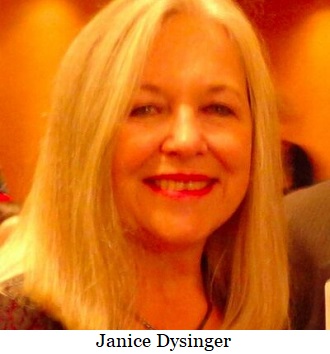
Janice Dysinger, Oregonians for Fair Election, told of Clean Voter Rolls and how you can check who is registered at your address on VoteRef.com. She employed everyone to please pray for all the activities against voter fraud. Dysinger told of the Secretary of State’s attempt to silence her by telling her to preface her speeches by quoting statutes.
Richard Burke trained on how to canvass – what to do and what not to do. He encouraged everyone to get active and he makes it sound easy and doable for anyone. He offers training for anyone running for county clerk or any office.
John Tamny, Director of FreedomWorks Center for Economic Freedom, spoke by livestream and answered questions from the audience regarding the economy. He points out that the people are the economy and it’s unfair of politicians to claim they control the economy. When responding about companies, he said, “Never, ever bet against the United States.†He closed with the economy is still experiencing the effects of when they had us locked in our homes.
Dr. Douglas Frank, known for his scientific modeling of the U.S. elections was the keynote speaker. He has a 92-99 percent predictability from his algorithms and data. Oregon has 107 percent more registered voters than eligible voters. The Secretary of State website says there are 7,236 more people voted than the 2020 voter history. He illustrated that Lane County had 652 more register voters than eligible voters, and Coos County had 153. Every county in Oregon, Frank said, cannot reconcile their numbers.
Motor voter has smoothed out the algorithms so every county has the same 83 numbers sequencing. That’s why once one county’s codes are established it can be repeated for every county. It can predict the vote for every age and party. The random voting disappears when there is centralized control by the state. He exposed 300 missing ballots in Lane County for them to pursue. His work has revealed that county clerks do not have the technical training to know how to back up their data. Education is key, but the fix is local. It starts from the bottom up – that means canvassing your neighborhoods. Dr. Frank’s work can be found on rumble.
Tina Peters also presented by livestream because the judge wouldn’t authorize her to travel. She is the Colorado election clerk arrested for doing her job and making a forensic copy of her county’s election data. To close the day, the movie, Selection Code, was shown that tells her story. It is based on the Mesa III Report and how the machines are manipulating the votes.
--Staff Reports| Post Date: 2022-09-05 16:29:55 | Last Update: 2022-09-07 15:23:21 |
"Schools should be free from the political or personal agendas of the adults
On August 23, 2022 chief petitioner and parent activist Casity Trout submitted the recall paperwork to recall Salem Keizer school board members Karina Guzman-Ortiz, Ashley Carson-Cottingham, and Osvaldo Avila. According to the group Salem-Keizer Education First, "Parents and concerned citizens across the Salem Keizer School District will no longer sit idly by while they witness public education continue putting the futures of their children on the backburner as they indoctrinate young minds and negate to provide them with a rigorous academic experience. The reasons for recall petitions are cited below:
Zone5
Karina Guzman Ortiz does not prioritize academics for students in the Salem Keizer school district, her top priority is board policies with a focus on "accepting and confirming BIPOC and marginalized student voices and increasing culturally responsive school leadership, teaching and curriculum." She believes white supremacy is a structural and systemic issue, and believes white people are privileged and cannot experience racism. She is quoted saying " ... racism operates at the systemic institutional level and we understand that marginalized communities and oppressed communities do not benefit off the structural support and structural benefits or privileges that many white people do." She strongly supports students expressing their gender at school and "in due time they might be able to share that with family members". She has supported putting a ban on expulsion and suspension for students despite the growing number of disciplinary incidents occurring in our schools since the cancelation of School Resource Officers. She has supported spending taxpayer funds on feminine hygiene products in every boy’s bathroom including at the elementary level. Student safety is at risk; she supported the removal of SRO's when data included 170+ interactions involving weapons. She voted to ban concealed carry while on district grounds.
Zone 3
Former Board chair, Osvaldo Avila, labels parents whose values differ from his own with divisive rhetoric and slander to dismiss their concerns; even referring to them as "book burners," while supporting books that illustrate with pictures, in detail, teen's giving oral sex and having intercourse. He's supported special interest groups who use hate speech to intimidate parents; calling them "white supremacists," "racists," and "transphobic." Avila has given preferred treatment to these groups with early entry to board meetings, permitting them to hide their identity when giving public comment, and allowing them to harass parents through physical posturing, name calling and threatening behavior. These same groups have harassed board members with opposing views at their homes and places of work to intimidate them. Avila's bias against parents was further illustrated when he stated "the primary onus is the educators, are the ones responsible for the education" Indicating parents' rights are less than educators. Student safety is at risk; he supported the discontinuation of student safety data collection that previously included reports of over 11,000 disciplinary incidents students were involved in. He supported the removal of SRO's when data included 170+ interactions involving weapons. He voted to ban lawful background checked concealed carry.
Zone 1
Ashley Carson-Cottingham does not prioritize student academics and education according to her strategic goals for 2022/2023. In outlining HER goals, she stated "I'm really interested in school-based health centers (SBHC)". SBHC will allow minors to seek medical care, to include for conditions as serious as HIV, without parental consent or knowledge per ORS 109.640. Her chosen priority ignores the fact that less than half of all third graders are not meeting reading proficiency goals. She has not maintained order in the boardroom as outlined in Board Chairs Role policy, allowing for hate speech, intimidation and race-baiting from special interest groups who contributed to her campaign. This creates safety concerns for attendees. Parents feel intimidated, as though they have no participation rights in the education of their student while having forced differing ideologies taught to their children. Years of research have highlighted the importance of parent involvement in student success. Ashley is in support of graphic books in the district libraries that portray teenagers giving and receiving oral sex and having intercourse. She voted to ban concealed carry-on district grounds, is against renewing the SRO contract, and is in favor of the transgender policies that were created without parent input.
According to Salem-Keizer Education First, "Several groups in the Salem Keizer School District community make up several thousand individuals who demand that the classrooms are a neutral, safe, welcoming and inclusive place for all students." Chief petitioner, Casity Troutt commented on the book Gender Queer, stating that “the objection and outrage over the inappropriate and pornographic materials is not at all an attack on LGTBQIA+ students or the BIPOC students. Parents would equally object to any book as graphic and sexually explicit if it were about a heterosexual person. There is no objection to teaching about the horrors of racism, it must be done so we can continue to grow and move on from such an ugly part of history but only with telling the truth and not in glorifying an institution that seeks to breed division. We want all students to be welcomed, safe, happy, healthy and to receive an excellent education so they can have a promising futureâ€.
A D V E R T I S E M E N T

A D V E R T I S E M E N T
"Schools should be free from the political or personal agendas of the adults and are conducive to thinking and learning critically. They demand that students are once again taught the fundamentals like reading, writing, math, history and science. Parents are saying no to indoctrination and that they have every right to have a decision in what their child is being exposed to in schools because parenting doesn't end when the bell rings," according to the group Salem-Keizer Education First.
--Staff Reports| Post Date: 2022-09-02 06:54:47 | Last Update: 2022-09-02 16:28:37 |
The bill was panned for eliminating much of the requirements for graduation
Following an extensive community engagement process, the Oregon Department of Education has released a report to the Oregon Legislature and State Board of Education titled, "
Community-Informed Recommendations for Equitable Graduation Outcomes: Senate Bill 744 Report." When the Oregon Legislature passed
SB 744, it directed the Department of Education to review state requirements for high school diploma and to make recommendations related to requirements. At the time, the bill was panned for eliminating much of the requirements for graduation.
The report, developed by the Oregon Department of Education in response to legislative request, contains a summary of the department's engagement process and feedback, a review of current Oregon diploma requirements, a review of graduation data and essential skills, a scan of nationwide diploma requirements and trends, and determinations and recommendations for the Oregon Legislature and State Board of Education to consider and inform future graduation policy decisions. Oregon's graduation requirements were last reviewed in 2007 and updated in 2008 and phased in through 2013.
The Oregon Department of Education, Oregon retains stringent requirements for teaching and assessment of reading, writing, math and all other content areas within high school courses, as the number of high school credits required has not changed and remains as rigorous as any in the nation. To earn a diploma in Oregon, students must earn passing grades in 24 high school credits, including four years of language arts and three years of math.
To develop the recommendations, ODE coordinated extensive statewide engagement, involving more than 3,500 diverse students, community members, families, educators, and representatives of higher education and workforce and industry. ODE also conducted an in-depth review of Oregon graduation data by investigating inequities and disparities, exploring diploma policies in other states and comparing Oregon diploma policies with national trends.
A D V E R T I S E M E N T

A D V E R T I S E M E N T
Statewide, local, and regional engagement was hosted by both ODE and Oregon's Kitchen Table to gather feedback from a diverse variety of community members. Participants were asked what they value in education and what a diploma means to them, their family, and their community.
"Oregon is fortunate to have so many diverse community members from throughout the state deeply committed to informing future graduation policies," said Colt Gill, Director of Oregon Department of Education. "Their contributions enabled the Oregon Department of Education to perform a deep, equity-based review of diploma policies to help prepare Oregon's students for a productive and opportunity-filled future. Thank you to everyone who participated in this necessary review."
The report includes two determinations in response to questions posed by SB 744, which ODE was entrusted with addressing. The report does not recommend changing diploma requirements in basic academic skills. Determination #1 addresses the question, "of whether the skills and knowledge expected to be attained by persons who earn high school diplomas in this state... align with the requirements for high school diplomas in this state." Determination #2 addresses the question, "of whether the requirements for high school diplomas in this state have been applied inequitably to different student populations."
- Determination 1: ODE has determined that the skills and knowledge expected by business, industry, and postsecondary education do not fully align with the current requirements for the Oregon Diploma.
- Determination 2: ODE has determined that the requirements for Oregon high school diplomas have been applied inequitably to different student populations.
ODE developed final recommendations by following the principles listed below when synthesizing the information gathered from the review and engagement process:
- Center accountability on systems, not students. Place accountability on systems to provide the educational resources needed to make requirements feasible for students.
- Reflect student and community assets. Equity in graduation requirements demands that Oregon's diploma process honors and recognizes student, family and community diversity, culture, assets and strengths (especially communities who have been historically marginalized such as those experiencing poverty, those experiencing housing instability, those experiencing disabilities, those experiencing mobility, those who are multilingual, and students who identify as Black/African-American, Indigenous or Native, LGBTQ2SIA+ community members.)
- Prepare students for their futures. Diploma requirements must be designed so students are prepared to thrive in the ever complex and changing world after graduation.
- Create coherence and clarity. Diploma requirements should be accessible, with clear expectations and steps to achieving a diploma identified.
A D V E R T I S E M E N T

A D V E R T I S E M E N T
These recommendations are intended to make Oregon's diploma requirements more equitable, accessible, and inclusive for all students. The recommendations do not stand alone and should not be implemented independently. If the State Board of Education and/or Legislature consider implementation of any of the recommendations they should be implemented in a coordinated fashion that is further informed by active and robust community engagement.
The final report and supporting appendices can be accessed online. The process and report offer an opportunity for the Legislature and State Board of Education to review Oregon's diploma requirements and consider updates to better serve all of our youth. This report shows that Oregon has a chance to reimagine and rebuild our education system in a way that more equitably serves Oregon's students. This report in and of itself does not direct any action on Oregon's diploma requirements, any action based on these requirements would be signaled by future direction from the Oregon Legislature or State Board of Education.
--Staff Reports| Post Date: 2022-09-01 11:21:20 | Last Update: 2022-09-01 13:54:47 |
Read More Articles








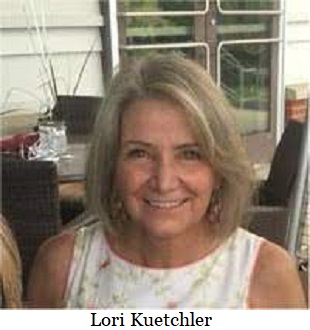


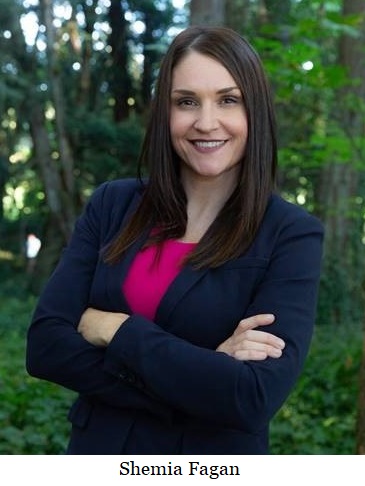

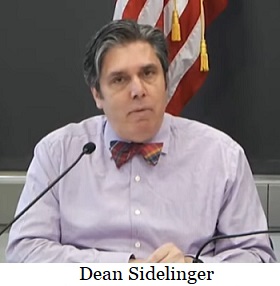

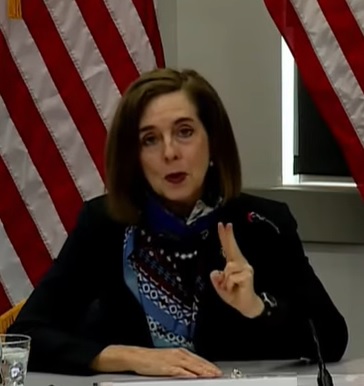
 “Oregon’s economy is still strong. Oregon Senate Democrats’ investments in housing, education and childcare are showing results. The market is stabilizing and our budgets continue to reflect our success. We are driving down costs for everyday Oregonians and providing investments and opportunity for every community around the state," said Senate Majority Leader Rob Wagner (D-Lake Oswego). "The responsible and fiscally smart leadership of Oregon Democrats have left us with the largest budget reserves in Oregon state history,†failing to recognize the impact of massive federal spending.
Senate President Peter Courtney (D-Salem) took a more sobering line. “Our economists say Oregon is doing well. Not all Oregonians feel the same way. We should invest in our communities carefully… and stay on our toes. If there is a downturn, Oregon will be ready.â€
“Oregon’s economy is still strong. Oregon Senate Democrats’ investments in housing, education and childcare are showing results. The market is stabilizing and our budgets continue to reflect our success. We are driving down costs for everyday Oregonians and providing investments and opportunity for every community around the state," said Senate Majority Leader Rob Wagner (D-Lake Oswego). "The responsible and fiscally smart leadership of Oregon Democrats have left us with the largest budget reserves in Oregon state history,†failing to recognize the impact of massive federal spending.
Senate President Peter Courtney (D-Salem) took a more sobering line. “Our economists say Oregon is doing well. Not all Oregonians feel the same way. We should invest in our communities carefully… and stay on our toes. If there is a downturn, Oregon will be ready.â€



 Currently, local mutual aid and federal resources are on scene working to slow the fire's progress. An OSFM Incident Management Team will be briefed and will assume unified command today with federal partners. OSFM will bring in four additional task forces through the Oregon Fire Mutual Aid System from Lane, Clatsop, Washington, and Yamhill Counties to assist in the response.
Currently, local mutual aid and federal resources are on scene working to slow the fire's progress. An OSFM Incident Management Team will be briefed and will assume unified command today with federal partners. OSFM will bring in four additional task forces through the Oregon Fire Mutual Aid System from Lane, Clatsop, Washington, and Yamhill Counties to assist in the response.

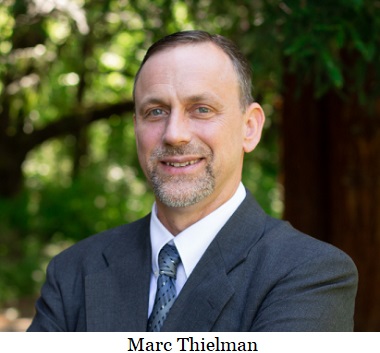

 Janice Dysinger, Oregonians for Fair Election, told of Clean Voter Rolls and how you can check who is registered at your address on VoteRef.com. She employed everyone to please pray for all the activities against voter fraud. Dysinger told of the Secretary of State’s attempt to silence her by telling her to preface her speeches by quoting statutes.
Janice Dysinger, Oregonians for Fair Election, told of Clean Voter Rolls and how you can check who is registered at your address on VoteRef.com. She employed everyone to please pray for all the activities against voter fraud. Dysinger told of the Secretary of State’s attempt to silence her by telling her to preface her speeches by quoting statutes.
